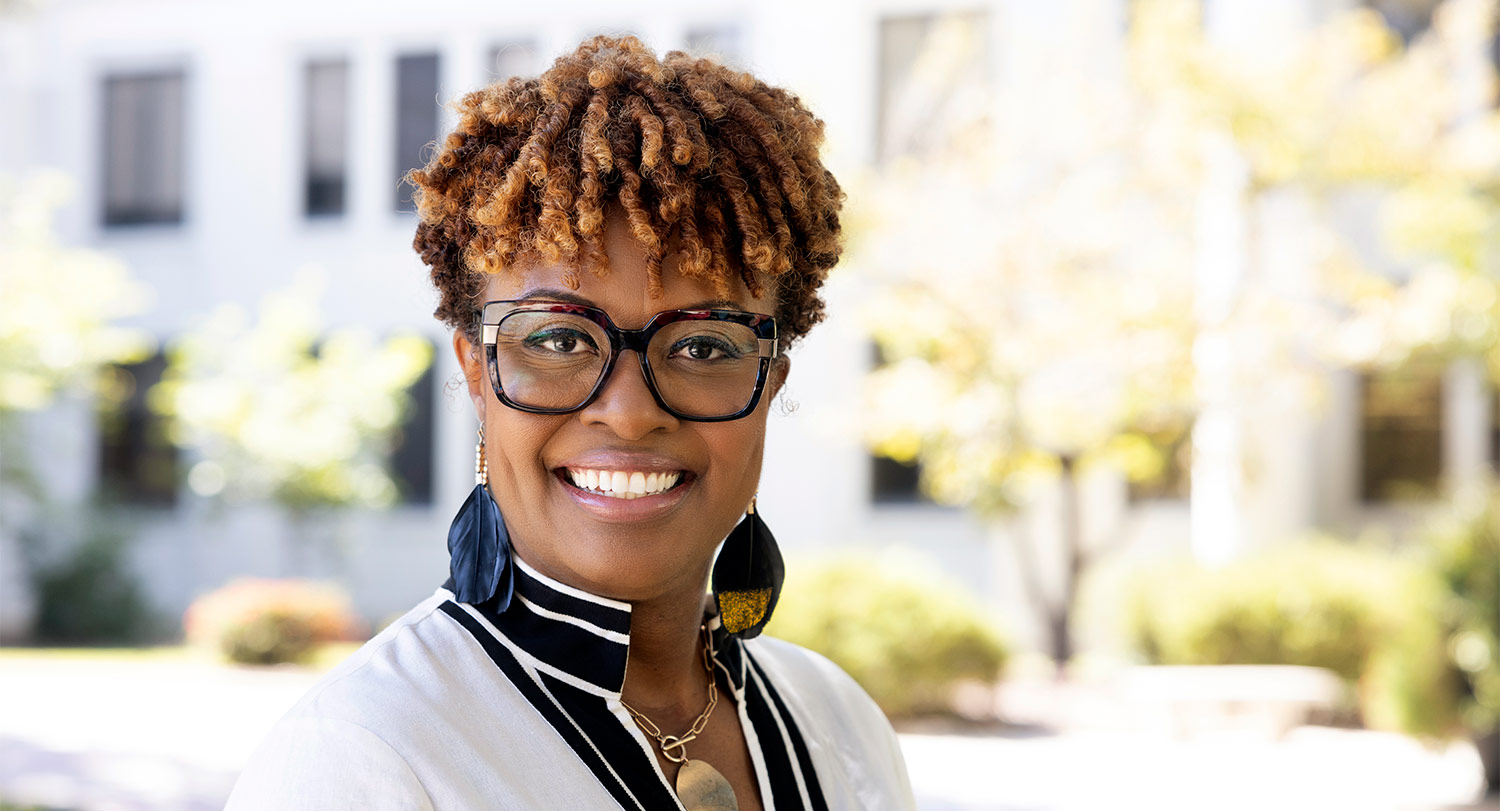
In her 25 years as a teacher, instructional coach, mentor and principal in Richland School District 2, Cassandra Bosier found herself at the “end of the pathway” for teacher candidates working to earn their undergraduate degrees in education.
“As a principal, coach or mentor, it was not until they were already in front of the class of students before I got the chance to coach and impart additional skills and knowledge,” she says of the new teachers she observed and supported in elementary school classrooms.
It made her wonder: “What would be different for them if we had these conversations or experiences earlier in their learning and preparation pathways?”
Now, as a clinical associate professor in the University of South Carolina College of Education, she’s finding out the answer to those questions. This fall, she began her first semester teaching undergraduate students preparing to be elementary school teachers.
It’s quite a change for Bosier, a first-generation college student who grew up in Manning, South Carolina, and earned her undergraduate degree from South Carolina State University. In her 26 years in education, she has served as a teacher, instructional coach, mentor, assistant principal and principal, and she earned her master’s and doctoral degrees in education.
But after leading a school as a principal during COVID-19, meeting and navigating through challenges are nothing new for Bosier.
“Every aspect of our work was entirely new, and the critical thinking we were forced to engage in was truly innovative,” she says. “For an elementary school setting, this transition posed even greater challenges, as we had no prior experience with distance learning. Our teaching methods are fundamentally hands-on and experiential, and we are accustomed to interacting directly with our students to facilitate those learning experiences.”
"I’m definitely where I’m supposed to be and doing what I’m supposed to be doing at this juncture in my life.”
She says adapting to the changes brought about through COVID-19 was difficult on students, parents, teachers and administrators.
“It felt as though we were constructing the plane while in flight, as no one had encountered such a situation before,” she says. “As administrators, we were required to remain at the forefront, determining the best course of action and the strategies to implement.”
And while COVID-19 exposed many challenges in elementary education, Bosier acknowledges many good things also came out of lessons learned through the pandemic.
“We discovered the importance of flexibility,” she says. “We realized that a day away from school did not necessarily equate to a day devoid of instruction. Additionaly, our communications with parents improved significantly, fostering stronger connections.”
After the pandemic and nearing retirement, Bosier started to consider other pathways. She had been teaching adults online since 2008, but always had some curiosity about teaching in-person on the college level.
“I'm a woman of strong faith,” she says. “I believe in the notion that the right opportunities present themselves at the right moments. It is all by divine orchestration. By making myself available and exploring possibilities at that opportune time, everything aligned perfectly.”
Now in her first semester in the classroom at USC’s College of Education, she’s teaching math methods for elementary school and management of the elementary classroom. She also serves as the professional development liaison for local elementary schools and the university supervisor of teacher interns.
“As a principal, I believe I offer valuable insights and extensive experience that I can share with pre-service teachers,” Bosier says. “It’s not just about outlining expectations; it’s also about coaching them on how to achieve those goals effectively.”
And so far she is enjoying her time with the next generation of elementary school teachers.
“I truly enjoy engaging in in-depth conversations with my students who are now young adults vs. the elementary-aged students I’m accustomed to,” she says. “I appreciate the perspectives they bring and love hearing them articulate their experiences with mathematics and establishing relational and respectful classroom cultures. I’m definitely where I’m supposed to be and doing what I’m supposed to be doing at this juncture in my life.”